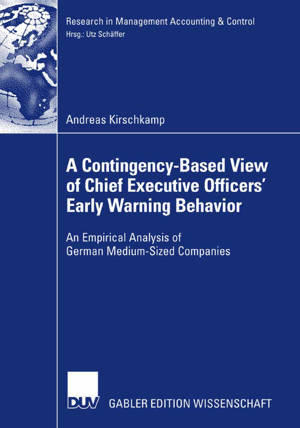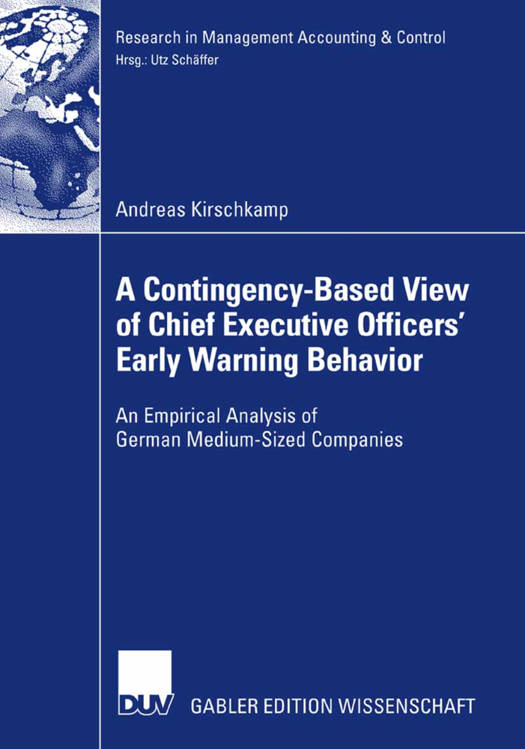
- Afhalen na 1 uur in een winkel met voorraad
- Gratis thuislevering in België vanaf € 30
- Ruim aanbod met 7 miljoen producten
- Afhalen na 1 uur in een winkel met voorraad
- Gratis thuislevering in België vanaf € 30
- Ruim aanbod met 7 miljoen producten
Zoeken
A Contingency-Based View of Chief Executive Officers' Early Warning Behaviour
An Empirical Analysis of German Medium-Sized Companies
Andreas Kirschkamp
€ 52,95
+ 105 punten
Omschrijving
Foreword With early warning of CEOs in small and medium-sized companies, Andreas Kirschkamp has found a highly relevant and, up to this point, mainly unexplored research area as a field for his dissertation thesis. In a first step, he confirms the results of traditional contingency theory which show a strong link between environmental uncertainty and strategic sensemaking. In a second step and as the actual core of this study, he elaborates on the link between personality traits of CEOs and their strategic sensemaking. Thus, he sees his study in the tradition of an "extended contingency theory". The underlying framework originates from Lewin/Stephens 1994 who distinguish eight attitudes as determinants of organizational design. Kirschkamp empirically shows that six of these attitudes have significant explanatory influence on the design variables. However, egalitarianism and degree of moral reasoning do not have any explanatory power within this context. Regarding the relationship between early warning behavior and success, Kirschkamp finds that successful CEOs differ in their use of sources from their less successful peers. They use internal, impersonal and external, personal sources more than managers of organizations with low success in early warning do. The managers with effective early warning behavior scan with a broader scope, delegate less, interpret with more and different partners, and more intensively. However, no difference can be observed as for the frequency of scanning, tool support and fixity of time for interpretation.
Specificaties
Betrokkenen
- Auteur(s):
- Uitgeverij:
Inhoud
- Aantal bladzijden:
- 271
- Taal:
- Engels
- Reeks:
Eigenschappen
- Productcode (EAN):
- 9783835006560
- Verschijningsdatum:
- 27/11/2007
- Uitvoering:
- Paperback
- Formaat:
- Trade paperback (VS)
- Afmetingen:
- 148 mm x 210 mm
- Gewicht:
- 358 g

Alleen bij Standaard Boekhandel
+ 105 punten op je klantenkaart van Standaard Boekhandel
Beoordelingen
We publiceren alleen reviews die voldoen aan de voorwaarden voor reviews. Bekijk onze voorwaarden voor reviews.











